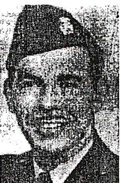
Adrian Phillips, a graduate of the City College of New York and veteran of the U.S. Merchant Marines, volunteered for the “Secret Fleet” in 1947. He would be assigned to run the British blockade of Palestine. In Baltimore he joined the crew of the “President Warfield” (renamed “Exodus ’47”) which set sail for Europe. Like other volunteers, he was cautioned, “If the British catch you, they’ll hang you.” Although he knew little or nothing about Zionism, he felt that he had to do something with his life, and he signed up “to help people.” He knew full well that he might be on a suicide mission.
Recalling the neglected condition of the future “Exodus ’47”, he says, “I grabbed a handrail on entering the ship and it came off in my hand, and as I kicked to check the steel boiler support, my foot went through it.” Theyattempted to sail the ship out, but almost sank off Cape Hatteras and they returned to port. Phillips was reassigned to another ship before the “President Warfield” left for its fateful voyage.
Phillips’ new ship was another U.S. Coast Guard veteran, “Tradewinds,” renamed “Hatikvah.” The ship picked up 1,500 Holocaust survivors in Europe and was captured by the British off the coast of Palestine. The passengers and crew members were interned on Cyprus for three months, during which time Phillips escaped from the camp but was recaptured. The prisoners were transferred to a prison ship, the “Empire Lifeguard,” sailing for Haifa. As the vessel sailed into the Haifa harbor, explosives which had been smuggled aboard in Phillips’ toothpaste tube were used to blow up the ship. The refugees barely had time to make a run for the pier before the explosives went off. Along with several other American crewmen, Phillips was held responsible for the sabotage by the British.
Adrian Phillips was interned in the Atlit Camp along with other crew members, of whom 26 were Americans. Most of them were released soon after their internment, including the skipper Sidney Yellin, in an attempt by the British to avoid an international incident over the American prisoners.
Adrian and two other New Yorkers, Herman Braverman and Michael Weiss, continued to be held in Atlit without being charged. Adrian’s mother, Rose Phillips, launched a one-woman campaign from her home in the Bronx, New York. She contacted newspapers, State Department officials and congressmen, and fought intrepidly for the prisoners’ freedom. After a lengthy battle in Palestine and the U.S., her son returned home. Adrian had met a young woman amongst the Holocaust survivors in Atlit, Gerda Gottesman, and seven years later they married.
During his imprisonment, Adrian Phillips wrote to his mother: “Please keep up your courage, the worst is behind us, and that goes for all the Jews.”
Source: American Veterans of Israel Newsletter, Fall 2002

